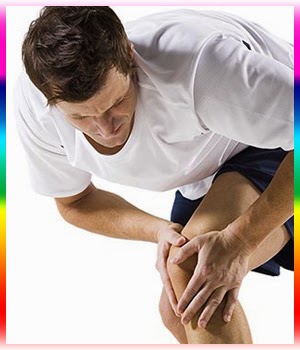How do you know when you should see the doctor?
Hello,
About 2 years ago I started running for "just getting fit" reasons. But, recently I have been getting intense knee pain when I run or even just walk (although I use professional runners shoes).Is that a sign I may be doing something wrong when I run? Should I buy new shoes or might it be something else? I would love to hear from you as I am a little concerned about this. I am neither old (only 27) nor do I have any other physical condition on a continual basis that would explain that.- Gabriela
Gabriela-
Both are great questions! First, knee pain can occur for many, many different reasons. Hips and knees, unfortunately, are very vulnerable to injury. When pain persists for more than several days, it's always best to consult with your health care professional, preferably one that sees and treats running-related issues.
 |
| Why Does My Knee Hurt? |
Also, always assess your running shoes when experiencing any aches or pains. How old are they, how many miles do they have, and are they the correct running shoe for you? What type of surface are you running on; is it brick, pavement, concrete, or trail? Hard, unforgiving surfaces can be tough on knees and you may need to change, or at least vary, the surface you run on. Also, how level is the running surface; is it slanted or cambered? Running at an angle, even a very subtle one, creates uneven wear and tear on knees and other joints.
Body mechanics also play a role in many injuries. If possible, have your running gait assessed by a sports medicine professional. Correcting body mechanics creates even loading on joints and efficient movement patterns that reduce the risk of injury. Body mechanics can be corrected in several ways; for example, strengthening and stretching specific muscles, wearing the correct running shoe, or by using a special shoe insert in your running shoe. These inserts can be an over-the-counter or custom-made orthotic.
Next, evaluate your Training Plan and the key points to consider are: Have you been increasing speed or distance recently? Also, are you allowing for adequate recovery time? Increasing mileage too quickly or introducing speed too soon, increases the risk of injury. When increasing mileage, follow the 10 percent rule. Increase weekly mileage by just 10 percent a week, and then, every two to three weeks, cut back your mileage by 10-20 percent for a rest week before building again.
When incorporating speed into your training, target one day a week as your "speed" day. Speed day is a short mileage day. Begin by introducing short intervals of faster running interspersed into your training run. For example, after a thorough warm up, run at your usual training pace for 1 mile, then pick up the pace and run faster for 30 seconds, then slow down and jog easy to recover. Return to your training pace for a few minutes, and then try another 30 second interval of faster paced running. Repeat this alternating sequence throughout your run. As always, include a cool down period following the workout.
Recovery time is another important factor and one that is often overlooked. Be certain you allow plenty of recovery time to give your body rest and adaptation time. If you are running on consecutive days, consider running every other day to allow more recovery time between workouts. When doing speed work and long runs, alternate hard and easy workouts. After a hard run, your next run day should be easy. Cross-training can be helpful, especially when dealing with injuries, because it can maintain, and even expand our aerobic base, without pounding the pavement. It can also improve overall muscle strength by balancing opposing muscle groups. In other words, cross-training can complement your running. Try swimming, spinning, or cycling for aerobic endurance and Yoga, Pilates, or weight training for improving muscular strength and balance.
All the best to you!
Susan S. Paul, MS
Susan S. Paul, MS
Susan Paul has coached more than 2,000 runners and is an exercise physiologist and program director for the Orlando Track Shack Foundation. For more information, visit www.trackshack.com.
Have a question for our beginners experts? Email it to beginners@rodale.com. NOTE: Due to the volume of mail, we regret that we cannot answer every email.
Comments
Post a Comment